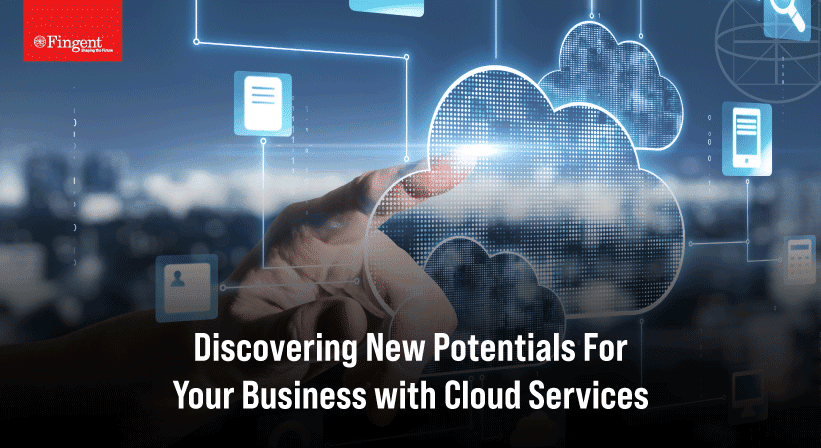Top Business Drivers that Boost Legacy Cloud Migration
Digital transformation was already happening across every industry, but the pandemic has accelerated the pace. Unfortunately, while many organizations have embraced the reality of rapid change, some of the companies have been slow to adopt new technologies.
Looking specifically at cloud solutions, companies that migrate some or all of their digital assets to the cloud can achieve transformational results. It is helping companies to innovate faster, modernize outdated infrastructure, get better insights from their data, scale globally, and restructure the existing business models to create better customer experiences.
Cloud migration allows easy access to data and applications from anywhere, making business functions smoother and simple to operate. This blog will help you understand why you need cloud migration now and the drivers that boost legacy cloud migration.
Why should you consider migration to the cloud?
Cloud migration can improve the performance and competitiveness of your organization. Often, system performance is poor, and maintenance costs are high. Any incompatibility with new technologies can cause problems when altering these systems as they cannot keep up to date at the same speed at which your business needs to innovate and scale. Additionally, lack of vendor support and regular updates for old systems can compromise the data security, making application migration to the cloud imperative.
Read more: Cloud Migration Strategy: 7 Steps to Accomplish a Flawless Transition
Common challenges associated with cloud migration
Cloud migration can be complex and risky, and many organizations face challenges during the transition.
1. Poor strategy and planning
Many organizations migrate to the cloud without proper planning or a good strategy. For a successful cloud implementation, organizations must plan well. As every application and dataset has different requirements, they will need a different approach to cloud migration. So, enterprises must have a valid business case for every workload it migrates to the cloud.
2. Vendor lock-in
This is a common problem faced by organizations that adopt cloud technology. While cloud providers offer many services, these services sometimes cannot be extended to other cloud platforms. Many organizations that start using cloud services often find it difficult to switch providers if the existing provider does not suit their requirements.
3. Data security and compliance
Data security and compliance are major obstacles to cloud migration. Cloud services often use a shared responsibility model in which they take the responsibility of securing the infrastructure while the organization takes responsibility for security data and workloads. It means you are responsible for configuring the security measures correctly and ensuring that all services and applications have proper security controls.
4. Cost Management
Many companies don’t have clear KPIs to understand what they plan to spend or save after migration, making it difficult to know if the migration was successful from the cost point of view. Additionally, as the cloud environment is dynamic, the costs can change as new services are adopted, and application usage grows.
Read more: A Comprehensive Guide To Modern Cloud Application Development
What are the drivers that encourage cloud migration?
1. Hassle-free digital transformation
With recent advances in cloud computing, leaders can digitize their core functionalities such as SAP, CRM, data analytics, and more. From innovating to improving productivity to unlocking new sources of revenue, the cloud provides endless opportunities to enterprises that migrate away from legacy systems.
2. Accelerate growth
Whether it is organic expansion, mergers, or acquisitions, technology is accelerating organizational growth. Organizations leveraging the cloud can integrate new acquisitions seamlessly with the existing platforms and also scale rapidly using auto-scaling functionality and flexible data management services.
3. Better Security
Data security is turning significant. By migrating to the cloud, enterprises can update their IT infrastructure according to the latest practices and protect their applications from malicious hacking attempts.
While many leaders mistakenly think that the cloud itself makes an organization secure, in reality, it empowers groups to implement governance, strict security policies, and compliance guardrails needed for their operations.
4. Improve business agility
To stay ahead of your competitors, you must be agile. It means you need to have access to flexible and on-demand IT resources. With the cloud, over 99% of resources are available on-demand. Also, enterprises don’t have to wait endlessly for any hardware component and installation. They can lease valuable capabilities from their cloud providers and get to the market faster.
5. Reduce costs
Yet another reason for businesses to migrate to the cloud is to reduce IT costs. You can easily find the right-size resources in the cloud according to your business needs and cut unnecessary costs. Also, companies can adjust capacity needs whenever the need arises and eliminate unnecessary hardware.
6. Merge data centers
With cloud computing, companies do not have to manage their own on-premises data centers. Instead, they can outsource back-end responsibilities to their cloud providers and use their resources for higher-value activities. Additionally, companies can consolidate their operations and distribute cloud services whenever needed, improving efficiency.
7. Leverage modern technologies
Migrating to the cloud allows businesses to leverage new technologies. For example, companies can take advantage of AI and machine learning which are not feasible on-premises. They can also take advantage of complex cloud-native technologies such as Kubernetes containers and data lakes easily.
Read more: 6 Reasons Why The FinTech Industry Should Embrace Legacy Cloud Migration
Conclusion
To avail of the migration benefits, you must successfully move your on-premises IT infrastructure to the cloud. As a cloud expert, we help understand the challenges and help you make a smooth transition without disrupting your current operations.
At Fingent, we offer a single control plane for the performance and security products to ensure seamless legacy cloud migration. In addition, we enable easy integration with public, private, or hybrid cloud. So connect with our experts today, and know, how we can help you take your business to new heights with seamless cloud migrations.
Stay up to date on what's new

Recommended Posts

05 Nov 2023 B2B
Cloud 101 – Getting a Good Return on Your Business Cloud Investment!
In the digital age, cloud investment is your business's propulsion, offering flexibility, scalability, and a competitive edge. However, many companies don't fully reap the cloud's benefits. The cloud's potential remains……

15 Oct 2023 B2B
Hyperscaler Cloud Services: The Next Step In Business Cloud Investment!
Companies can save 20% of the total annual cost if they migrate to the cloud. Hyperscaler Cloud Services can enable businesses to experiment, build, innovate, and run any form of……

30 May 2023 B2B
Cloud Application Development: Empowering Your Business In The Digital Era!
“Cloud computing is really a no-brainer for any start-up because it allows you to test your business plan very quickly for little money. Every start-up, or even a division within……

28 Mar 2023 B2B
Cloud-Native: The Modern Way to Develop Software
For more than a decade, businesses in all industries have undergone a digital metamorphosis. This evolution is marked by a transition from on-premises software solutions to cloud-based computing technology. By……
Featured Blogs
Stay up to date on
what's new


























































